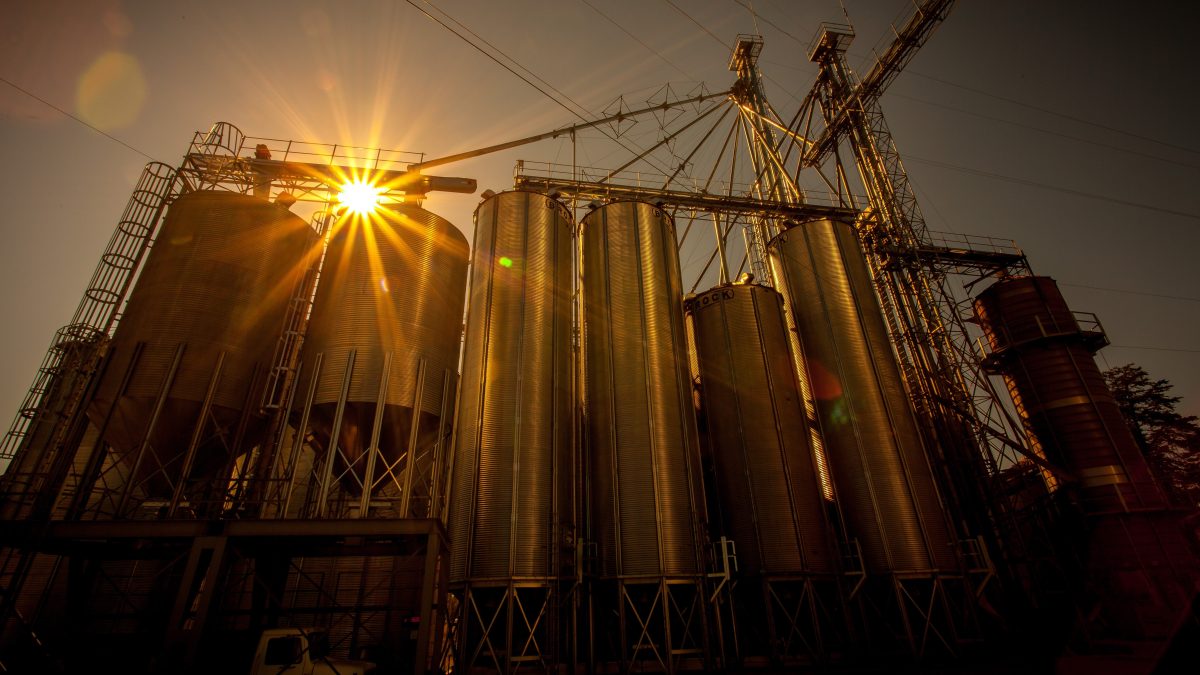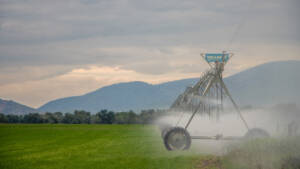Negative Margins Pressuring Farm Economy
John Newton, Ph.D.
Vice President of Public Policy and Economic Analysis
Chad Smith
Associate News Service Editor, NAFB

photo credit: Mark Stebnicki, North Carolina Farm Bureau
John Newton, Ph.D.
Vice President of Public Policy and Economic Analysis
Chad Smith
Associate News Service Editor, NAFB
The American Farm Bureau Federation is calling attention to the financial plight of the country’s farmers and ranchers. Chad Smith has more.
Smith: A recent Market Intel report from the American Farm Bureau Federation shows that financial stress is severe and persistent across farm country. John Newton, the vice president of public policy and economic analysis for AFBF, said the factors behind the stress are well-known.
Newton:Input costs have increased dramatically over the last few years, up in some cases, 30, 40, 50 percent, but at the same time, commodity prices have come crashing down. For many crops they’re at historically low levels. Trade has slowed, and the effect is we've had margins that have been at or below break-even for many crops and specialty crops for many years in a row, and that's starting to impact farm financial conditions.
Smith: Newton said trade losses heightened the challenges in an already difficult economic environment.
Newton: As the Chinese backed out of the market, that put further pressure on prices. As farmers were harvesting a crop, many of them didn't have storage and had to sell at harvest-time lows. So even though we've got a framework in place, and the Chinese are starting to buy product, for a lot of growers, the economic benefits of these frameworks may come too late.
Smith: Newton says that while some help was made available in the One Big Beautiful Bill and the American Relief Act, that assistance won’t reach farmers until some time next year.
Newton: The (U.S.) Department (of Agriculture) has pledged $12 billion in economic support to help offset trade losses. We hope to see details of that in the next few weeks, but the One Big Beautiful Bill, while it made a historic investment in farm bill risk-management programs, those benefits won't materialize on the farm for over a year.
Smith: Learn more on the Market Intel page at fb.org. Chad Smith, Washington.
What We're Saying

Changing Industry Dynamics Ahead for U.S. Dairy
Jan 27, 2026
READ MORE

AFBF Analysis Underlines Need for Additional Farm Support
Jan 22, 2026
READ MORE

New Analysis Reinforces Urgent Need for Additional Farm Support
Jan 21, 2026
READ MORE

Farm Bureau Urges Congress to Act on Farm Economy
Jan 20, 2026
READ MORE
